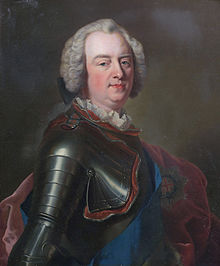As the 2024 General Election campaigns continue this week, news outlets have been filled with many different polls, suggesting a variety of possible election outcomes. But did you know that polling ahead of an election also took place in the 18th century? Dr Robin Eagles from our Lords 1715-1790 project looks at some of the polling predictions for our Georgian Elections project…
18th-century elections were often long drawn-out affairs. Preparations might begin years in advance of the next poll, often with the aim of avoiding a contest altogether. Sometimes, that was not possible, but in that case there was often detailed information available about how the various voters were likely to poll on the day.

Sussex was one county where an especially close eye was kept on events in the 1730s and 1740s thanks to the extensive interest (influence) of the dukes of Richmond and Newcastle, who worked closely together on both sides of the county.
In the general election of 1734, the poll for Chichester, for example, did not take place until 7 May, but that did not prevent Richmond sharing with Newcastle detailed insights into how the constituents were likely to lodge their votes. Writing from Goodwood on 11 January, he passed on information about the Whigs’ efforts to secure the borough of New Shoreham, but he was also able to offer Newcastle ‘our present calculation’ for Chichester, which lay very close to his country seat at Goodwood. According to this, the Recorder (James Brudenell, who also happened to be Richmond’s uncle) was on 375 votes; John Page, who was also standing on the Richmond interest, was on 296 and Thomas Yates, a Tory, on 269.
Just how granular Richmond’s intelligence was, is shown by a subsequent letter where he was able to assure Newcastle that a local family, the Drinkwaters, were all of them ‘zealous’ supporters of Brudenell. According to Richmond, ‘old Drinkwater’, the head of the family, had had his eyes opened to what the opposition was about by reading The Craftsman, a prominent opposition newspaper. He concluded ‘I see what they want, & will have nothing to do with them’.
Richmond’s information seemed detailed and secure, but by the time Chichester went to the polls in May, matters had altered slightly, and his two candidates were no longer sure of both seats. When the polls closed on 7 May, his uncle Brudenell remained on top with 353 votes, 22 down on what he had expected back in January, but Page had been squeezed out into third place. He had lost 18 votes to come in with 274, but Yates had improved his standing to secure the second spot with 288 votes.
It all went to show that however influential a great duke like Richmond might be and however much power he might wield over a city like Chichester, he could never be absolutely sure of carrying both seats in an election.
What happened in 1734 at Chichester was not just chastening for Richmond, of course. It also gave John Page cause to rethink his strategy. When Parliament was dissolved once more in 1741, he chose to stand as an independent. Yates had decided not to stand again, so Page was able to attract some of the Tories who had previously supported his rival. He was also helped by the fact that Chichester prided itself on its independence, which was believed to be threatened by Richmond trying to foist another of his people on the town. Richmond was taken aback by the vehemence of the city’s opposition to Sir John Miller, who seems not to have bothered to test his support at a poll. The 1741 election was in the end, thus, uncontested, with Brudenell and Page both elected. That did not mean, though, that an awful lot of preparation had not gone on behind the scenes to arrive at that solution.
[Source: McCann, ed. Richmond Newcastle Correspondence, 11-12]
RDEE
We’re mirroring the days of the 2024 General Election with a look into the electoral process in the 18th century! Follow the #GeorgianElectionsProject here and over on the History of Parliament’s Twitter/X and TikTok pages.
Want to know more about the dissolution process in the 18th century? Click here
